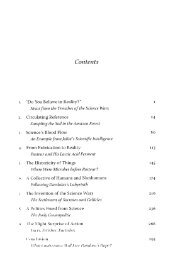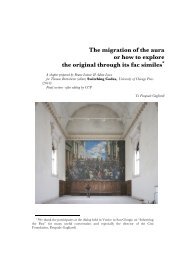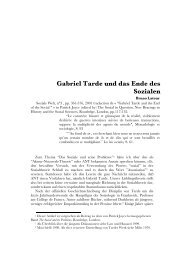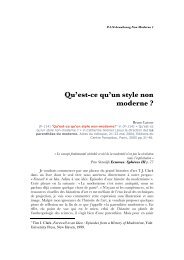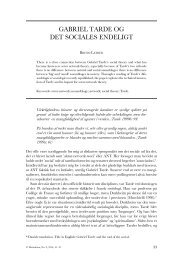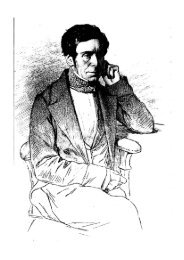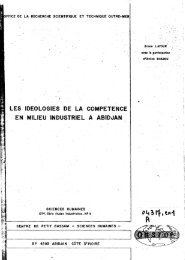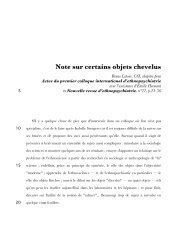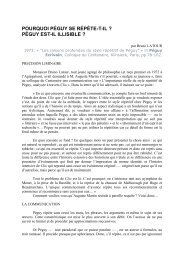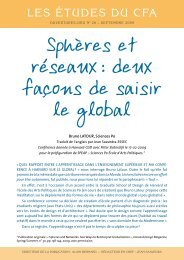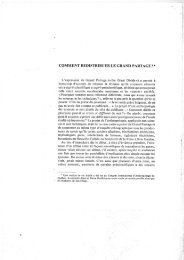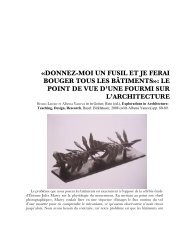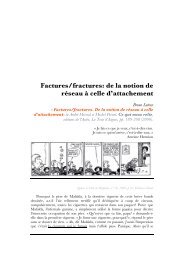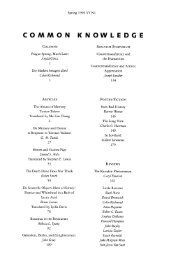A Well-Articulated Primatology - Bruno Latour
A Well-Articulated Primatology - Bruno Latour
A Well-Articulated Primatology - Bruno Latour
You also want an ePaper? Increase the reach of your titles
YUMPU automatically turns print PDFs into web optimized ePapers that Google loves.
166 Chapter Seventeen<br />
state of affairs<br />
r€sulting statement<br />
biases and theories<br />
Fig. 2. In the dualist model, a statement is the resultant beth'een tno opposite forces, what<br />
the rvorld is like and what we are equippetl to \aV about it.<br />
about them, on the other. with nothing in between. The dynamic of the<br />
meeting, however, slowlv eroded this original intention, and began to<br />
nudge us toward a completelv different set of metaphors. In order to be<br />
able to do the reflexive n'ork required of us, \ /e moved from an optical<br />
metaphor to a new one that I n-ill call "proposition."<br />
To be sure, the original irltention relied on a perfectly sturdy and venerable<br />
intellectual resource. t ikc in the "parallelogram of forces" we all<br />
learned at school, an\' statenrent about a state of affairs can be considered<br />
as the "resultant" of tn'o forces: what the world is like, and what n'e are<br />
equipped to sav about it. lf our biases are stronger, the resultant shifts<br />
toward one axis, n'hile, if the world is somehow strong enough, the staternent<br />
about it moves toward the opposite direction. With this classical<br />
rr.rodel, we inragine our statements to be twice constrained, not ottly by the<br />
world Duf also by our mental and cultural equipment. It thus makes a lot<br />
of sense to try to weigh the different components and to measure, for<br />
each historical period, which one is stronger and which is weaker.<br />
This model is obviously better than the naïve idea of science as an<br />
exact replica of the world, and it makes, I must confess, perfect commolt<br />
sense. Yet, it is utterly rlirolrg, since common sense is rarely a trustworthy<br />
guide in scientif,c matters. A simple thought experiment demonstrates<br />
tl-ris point easily. What would happen if there were no counterforce coming<br />
from the axis that I have called "biases and theories"? According to<br />
the model, it means that the resultant would be entirely determined by<br />
the state of affairs at hand. Thus, if we had no theory, no preconception,<br />
no bias, and no standpoint whatsoever, we would benefit from an indisputable,<br />
unmediated, pristine access to things in themselves. No laborator!'<br />
scientist would believe that for a minute. The same can be said of a<br />
natural historian-they know all too well the work needed To make a feature<br />
of the outside world lisiDle. During the conference, Steve Glickman<br />
prcsented us with a simple and startling example. Hyena ethologists had



